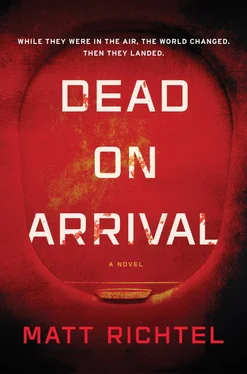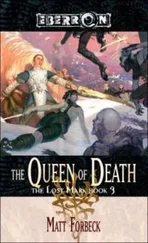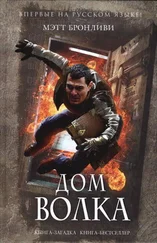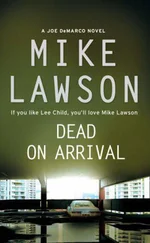“I hope they kill every one of those jerks,” a woman said to another woman sitting in a seat next to and beneath where Lyle stood with his bike. She was evidently referring to the proposed show of arms on Capitol Hill.
The other woman had her arms wrapped around herself, as if cold. She squeezed her arms. “I wonder if this is what it feels like before a civil war? You don’t see it and then it’s all of a sudden there and people are picking sides.”
The woman who had made the comment looked at her phone. Lyle glanced over her shoulder at the political website she read. He couldn’t make out the particulars but could tell it was a firebrand, lamenting and attacking the other side. The woman read and clucked her tongue and muttered to herself, bemused and irritated by what she read, increasingly furious at the other side. It brought him back to Melanie and her description of the weekend in the yurt where she said he’d lost it. That was easier for Lyle to think about than the image of the boy and the man. The yurt. Lyle could only distantly recall it. When he did, he pictured himself that weekend as a lightbulb that was flickering, losing energy, petering out. Or maybe the better analogy was to a dying star; pulsing with dead energy, poised to explode into nothing.
People got on and off the train at the last stop in Oakland. The metal tube hummed and shimmied beneath the bay. Lyle held tight to his bike’s handlebars. He found void and shadows when he tried to understand what had piqued him so much that weekend in the yurt. Melanie blamed it on that painful trip to the CDC in Atlanta. En route home at Hartsfield-Jackson airport, he’d waited three hours in security, which had been all backed up because of the shooting, and then missed his plane. Stuck there, he’d sat and watched the security guards and found he was imagining them as immune-system cells, carefully looking about the way b-cells and t-cells, the immune system’s two power brokers, combed the body and targeted foreign invaders. What a system, arguably the most sophisticated in the body. The defenders roamed freely, instantly sensing danger and then sending waves of soldiers to attack. Not just that: the soldiers adapted. They would, at the rate of a supercomputer, try out a trillion different combinations of proteins to figure out which could kill the invader. It required a system this powerful to survive in a world with a trillion different possible invaders, from flu to cancer to random toxins. A mad scramble for survival, the immune system scrapping it out against the bacteria or virus, each desperate to survive.
Any system so powerful, though, had a dangerous side. No great survival mechanism or instinct goes without its dark sibling. Autoimmune disorders had blossomed, or, at least, we were seeing more of them. Our great defense system, the man on the wall, turning around out of control and blowing everything inside the village to shit.
At the Atlanta airport, Lyle watched the guards and thought about soldiers, police, vigilantes, armed youth, the suburban dads who, terrified, shot some kid on-site, asking questions later. On the flight, he hardly slept. He could feel a generalized fear, stoking people to defend themselves, the way that the immune system defends itself, then becoming so deadly effective, so out of control, that the mechanism turned inward.
Why had he been devoting everything to help people who were turning on one another?
Thinking back to that time, as he sat on the subway, Lyle wondered if he’d, in a way, done exactly the same thing. He’d withdrawn, protecting himself by disengaging only to discover that he’d actually destroyed the good parts of his life and himself, too. Depression, sadness, he knew the literature, they, too, were outgrowths of survival mechanisms, like the fear and anxiety that warn us of danger, remind us of situations where we’ve been harmed and could be so again, but toxic and even deadly when spun notches out of control. Had he protected himself and ground to a halt as a result?
Melanie had told him that intimacy and love were the true medicine. He’d never have used those words. But damn it if he didn’t know she was right. The antidote in the micro, the antidote in the macro. Hard to let in when the perimeter defenses get jacked to the sky.
Lyle got off at the Civic Center and burst with energy on his ride to the apartment, not joy but grinding, an effort to exhaust himself. Lost in himself, he didn’t see the driverless car tagging a few paces behind.
He considered the new piece of evidence: the text he’d sent Melanie about a brilliant student. On its face, that sounded as bizarre and vague as the pandemic thing. First of all, it was three years ago, and there were myriad brilliant students in the UCSF medical classes and he knew almost none of the ones in a giant lecture. They sat out there and he stood up there. Sometimes, one would ask a question or he’d meet a few in office hours. He couldn’t remember a single student from that particular semester, well, maybe his graduate assistant. Emily, he thought with a last name that started with S or C. Maybe worth a contact.
Back at home, he went to the refrigerator to see what modest remains he’d left himself. He opened the creaky door and, no sooner had he done so, shut it. He stared at the front of the fridge. In the middle hung a magnet advertising a local pizza place. Last time that Lyle had seen that magnet, it held the note that he’d written himself about the pandemic.
The note was gone.
Lyle heard a gunshot and pasted himself to the ground.
In the ten seconds that followed, Lyle felt a deep connection with and understanding of the veterans he had treated during his residency. That wasn’t a gunshot. It had been a tire popping out his window. Yet he’d heard a gunshot, like the Vietnam vets he had seen at the VA wincing at as little as the click of an unfolding chair. What made it strange is that Lyle couldn’t recall being amid gunfire.
Then he could.
He pushed himself up into a push-up position and saw bursts of gunfire. Flashes of light against the snow. He cascaded across a fleeting montage: a body in orange on a tarmac; a cavernous building echoing with footsteps; a stricken child. He tried to hold on to the images. They evaporated.
He walked to the cupboard over the dish rack and unscrewed the cap on a bottle of Black Label, mostly drained. He poured a finger, finished it, poured a second and walked to a recliner in the open area that served as a living room across from the kitchen, staring for a long time at the distant magnet on the refrigerator.
What happened to the note?
His phone buzzed. He saw a text from a number he didn’t recognize. It was just a link. Spam, he immediately thought, and then the second message arrived from the same number. It read: We’re not imagining things. I’m using a new, temporary cell phone. You can get me here. Eleanor.
The pilot. Apparently fearing some digital scrutiny. Lyle clicked on the link she’d sent him. It brought up a newspaper article. The headline read: ODD NIGHT LEAVES SGT. IN CRITICAL.
The outlet was called Steamboat Today, the mountain town’s local newspaper. The article said that a police sergeant remained in critical condition after crashing his cruiser into Lindy’s Mountain Art. The local police said they were investigating the late-night crash and stood by an officer with a spotless record.
The first big snow of the season took other casualties, including a woman whose car overturned on the highway north of Steamboat. Authorities also said they believe that may have been the night of a still-unexplained shooting involving a local hermit, Dwayne Summerset, an avid gun collector found at his secluded home. And an isolated fire broke out at the Sleepy Bear Mobile Home Park, taking the life of a resident there and may, authorities said, have been caused by a storm that appears to have caused electrical problems.
Читать дальше












